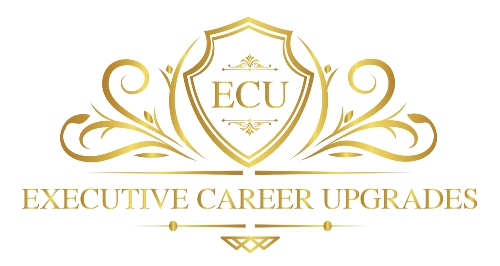Ten tips to go beyond conventional advice and grow leadership and develop new skills.
As an executive leader, you know that resilience is a key characteristic that companies look for in their employees.
But what about their leadership? Whether you’re looking to buffer yourself against the current market shifts or want to increase your agility to move across industries, building resilience is crucial for any executive leader.
So how can you build resilience as an executive leader? Here are some key strategies that can help:
#1: Embrace cognitive flexibility
For executives, this means cultivating a mindset that views disruption as an opportunity rather than a threat.
You can begin to build this by intentionally practicing scenario planning that goes beyond worst-case scenarios to imagine wildly different futures. This exercise strengthens your ability to pivot quickly and make decisions with incomplete information.
#2: Develop a personal board of directors
Just as companies have boards to provide guidance and diverse perspectives, executives should cultivate their own personal board of directors.
This isn’t just about networking; it’s about creating a curated group of mentors, peers, and even junior professionals who can offer fresh insights and challenge your thinking.
#3: Invest in transferable meta-skills
While industry-specific knowledge is crucial, the most resilient careers are built on a foundation of transferable meta-skills. These include emotional intelligence, systems thinking, and strategic foresight.
Dedicate time to developing these skills through cross-functional projects, executive education programs, or even pursuits outside your industry. The ability to see the big picture and connect disparate ideas will serve you well in any role or sector.
#4: Cultivate intellectual humility
In times of uncertainty, the most dangerous phrase is, “We’ve always done it this way.”
#5: Practice strategic vulnerability
Traditionally, executives have been expected to project unwavering confidence. However, in uncertain times, strategic vulnerability can be a powerful tool.
This doesn’t mean sharing every doubt or fear but rather being transparent about challenges and involving your team in problem-solving. This approach builds trust, fosters innovation, and creates a more resilient organizational culture–which is a foundational element for staying engaged in a shifting market space.
#6: Engage in continuous environmental scanning
To thrive in uncertainty, executives must become adept at spotting weak signals of change before they become disruptive forces. That’s why you need to develop a systematic approach to environmental scanning that goes beyond your industry.
#7: Build a portfolio career mindset
Even at the executive level, the idea of a single, linear career path is becoming obsolete. Adopt a portfolio career mindset, where you view your professional life as a collection of roles, projects, and experiences rather than a single job title.
This might involve taking on board positions, advisory roles, or even starting a side venture. Diversifying your professional portfolio provides multiple income streams and ensures that your career isn’t overly dependent on any single organization or industry.
#8: Prioritize regenerative practices
Resilience isn’t just about professional strategies; it’s deeply rooted in personal well-being. In times of uncertainty, the temptation to work longer hours can be strong.
#9: Foster ecosystems, not just networks
While networking has always been important, thriving in uncertainty requires going a step further to develop professional ecosystems. This means creating and nurturing interconnected communities that can adapt and evolve together.
Engage in collaborative projects across industries, mentor rising talent, and facilitate connections between diverse professionals. Being a central node in a vibrant ecosystem creates a resilient support structure that can provide opportunities, insights, and resources when traditional career paths falter.
#10: Embrace ethical foresight
Today’s executive must develop ethical foresight–the ability to anticipate and navigate the moral implications of business decisions. This involves staying ahead of emerging ethical issues in areas like AI, data privacy, and environmental sustainability. Getting intentional about these aspects will future-proof your organization and your career.
Thriving in uncertainty isn’t about having all the answers; it’s about developing the capacity to navigate complex, ambiguous situations with confidence and agility.
By embracing cognitive flexibility, cultivating diverse perspectives, and focusing on holistic resilience, executives and C-suite professionals can transform uncertainty from a threat into a catalyst for growth and innovation.
The strategies outlined here go beyond conventional career advice, encouraging a fundamental shift in how we approach professional development and leadership. When you take the time to invest in your resilience, you are not only securing your own success but also setting a powerful example for others to follow.
So ask yourself, are you willing to grow in your resilience? If the answer is yes, the future is ready for you.


